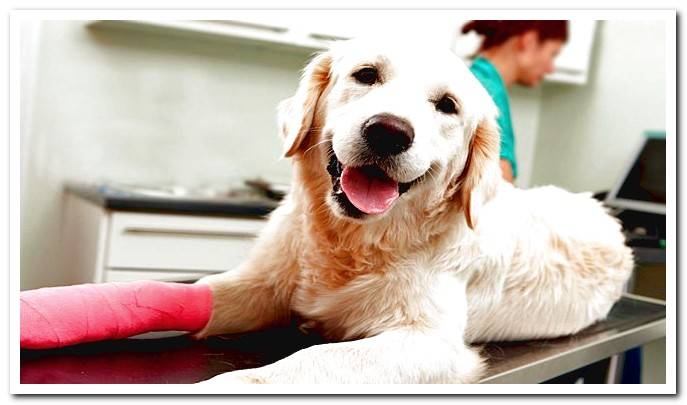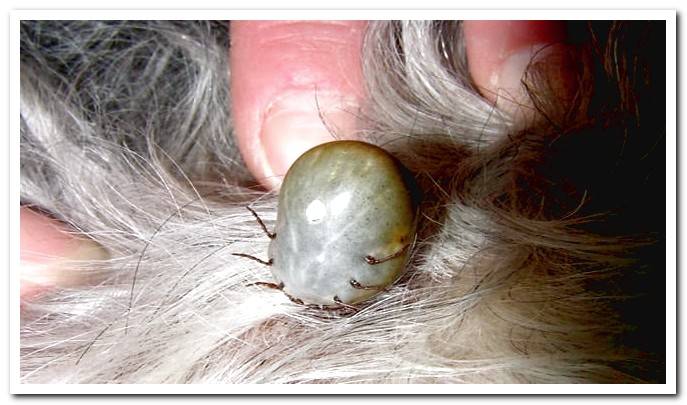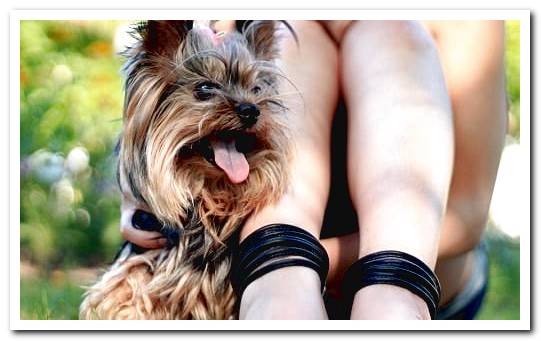
It is scientifically proven that ticks are an important focus of diseases that should be avoided, such as canine Ehrlichiosis. So the hygiene and periodic deworming of our furry friends is essential.
Knowing what this disease consists of and how it is transmitted is important in order to keep our dog healthy and protected, free from risks that can seriously affect its health.
That is why from Dogsis we want to show you everything you need about this disease, unfortunately increasingly common among dogs.
Index of contents
- 1 What is canine Erlichiosis?
- 2 Ehrlichiosis symptoms in dogs
- 3 Diagnosis and treatment of canine Ehrlichiosis
- 4 How to care for a dog with Ehrlichiosis
What is canine Erlichiosis?
Canine Ehrlichiosis It is a disease caused by a bacterium of the Ehrlichia genus. It is a germ that lodges in the cells of the dog and it can become chronic if not detected early. Before reaching this point, there is an initial incubation phase, which lasts from one week to a month, and an acute phase in which the dog shows multiple symptoms.
The way that Ehrlichiosis is transmitted through ticks of the genus Rhipicepthalus. For this reason, some refer to this condition as “tick disease”. As we will see, if it is detected early, the recovery prognosis is usually quite good. But let’s see what are the most common symptoms of infected dogs.

Ehrlichiosis symptoms in dogs
After the first weeks of incubation, which usually occur in the spring and autumn months, the dog may show the first symptoms of canine Ehrlichiosis. The most common are:
- Weakness and tiredness.
- Weightloss.
- Nasal and ocular secretions.
- Fever and swollen glands.
- Pale mucosa.
- Lack of coordination.
Occasionally too may have muscle spasms and other nervous symptoms. Sometimes, in the scrotum of males, edema or swelling due to excess fluid can also be detected.
These symptoms can manifest for a couple of weeks and, if not treated, the disease could become chronic. If this happens, the dog can become anemic, so it will be fatigued and without energy; You may also have nosebleeds, lameness, severe joint pain, depression, or anorexy.
In this phase there may also be ocular alterations, such as uveitis, which is inflammation of the middle layer of the eye. This produces redness and spots in the form of clouds or, in the most serious cases, retinal detachments.
It should be borne in mind that on many occasions Ehrlichiosis can remain dormant, without symptoms for months or even years, until it suddenly wakes up when the dog is weaker in health.

Diagnosis and treatment of canine Ehrlichiosis
The way to know for sure if a dog has Ehrlichiosis is through a complete blood test or blood count, in which special attention is paid to parameters such as the number of platelets.
These specific tests will see if there are other tick-related diseases, such as canine babesiosis, which can also cause anemia. Based on these results, the veterinaryn will recommend the treatment he deems most appropriate.
Normally you will choose antibiotics like doxycillin or tetracyclines, which is usually the most effective. Just in case these don’t work as expected, other antibiotics may be prescribed that may have more side effects on the dog.
But do not spread panic. Ehrlichiosis has a cure and this treatment usually works fairly good. If the disease has not been chronic, chances are that within two or three days the dog will be much better.
How to care for a dog with Ehrlichiosis
A furry with Ehrlichiosis is going to need a series of cares that will help him to recover. The main thing is that you strictly follow the vet’s treatment and that you don’t forget any of the doses so that the antibiotic works.
In addition to the medication, a diet with a good energy supply and that facilitates digestion can give very good results. In the event that the dog has lost a lot of weight, it can be enriched with some Food Complements. Ask the vet and let him advise you on which is better.
So now you know, follow all these instructions and your furry friend will almost certainly be looking forward to running and playing with you like before. Of course, do not lose sight of ticks because the dog could become ill again and also, a bite of these can also cause you to become infected. Yes, as you read, because Ehrlichia does not only affect dogs. Humans are also vulnerable.
